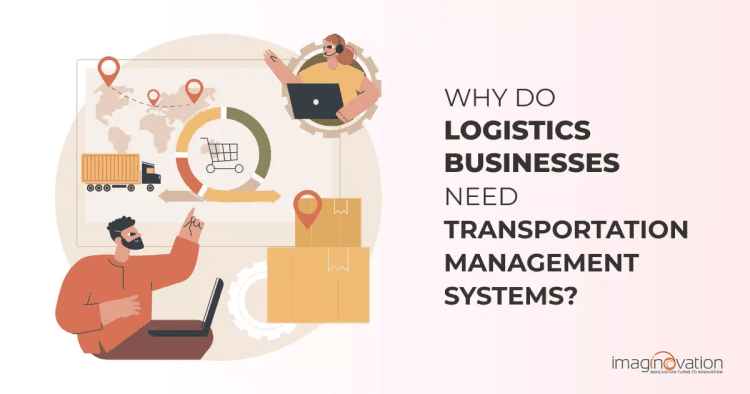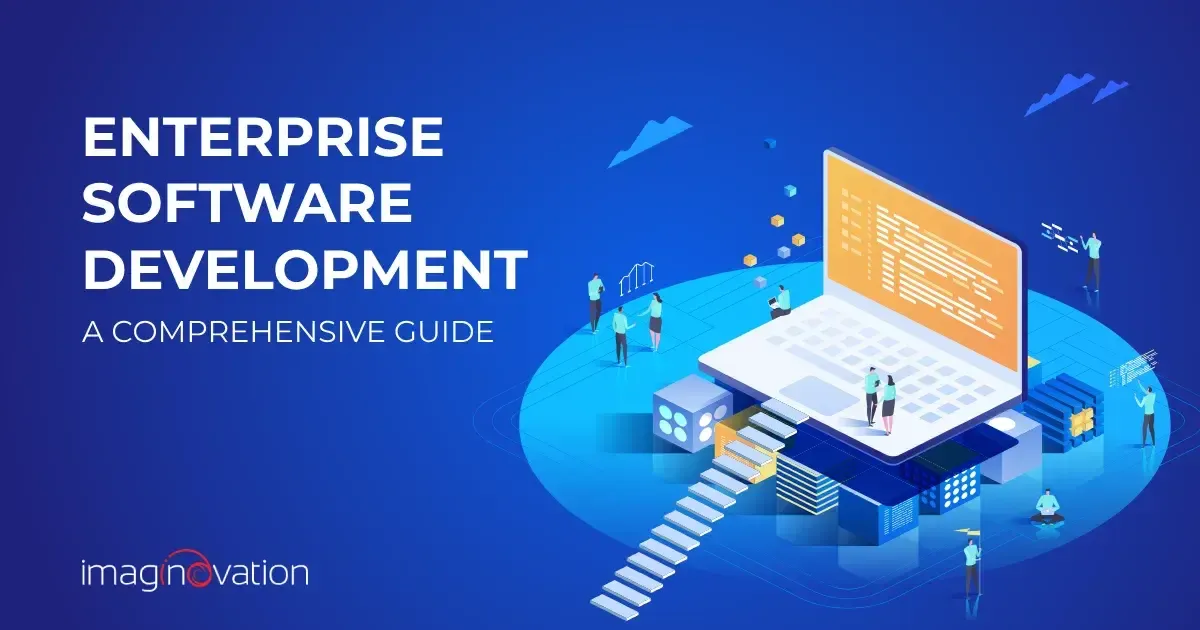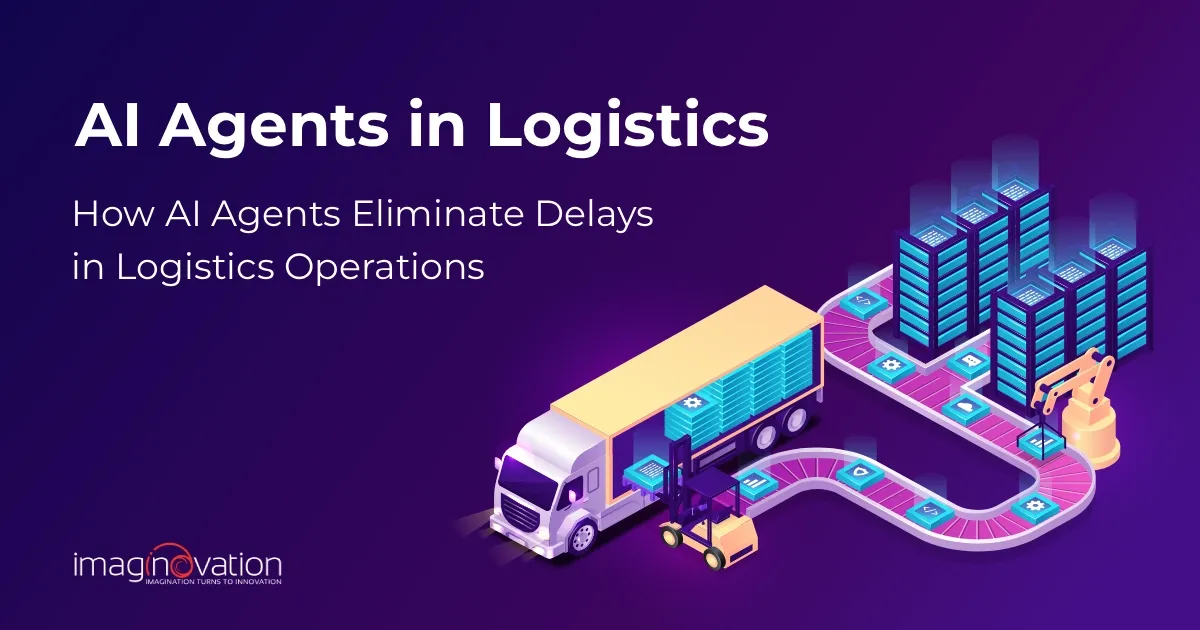To estimate the cost of building a website or an app, use our app cost calculator tool.
Logistics businesses are often faced with the challenge of being overwhelmed with the amount of data they need to manage.
Transportation Management Systems (TMS) help these companies to automate and streamline their transportation processes.
Companies can gain a competitive edge by experimenting with such TMS systems and staying ahead of the curve.
In this blog post, we will see what is a transportation management system and why do logistics businesses need it.
What is a Transportation Management System?
Transportation management systems (TMS) are software solutions designed to streamline the process of shipping goods. They typically include a variety of features to help businesses plan, execute, and track shipments.
Businesses of all sizes can use TMS solutions, but they are often seen as a valuable tool for larger organizations with complex shipping needs.
It can help these businesses save time and money by streamlining their shipping processes and improving visibility into their operations. In addition, a TMS can help businesses improve customer service by providing real-time tracking information and alerts.
There are many types of transportation management systems on the market, ranging from small, standalone solutions to large, enterprise-level systems. The right solution for a business will depend on its specific needs and shipping requirements.
Types of Transportation in TMS
Transportation management systems commonly do three kinds of transportation which are as follows:
1. Single Mode
In single mode, the transit is performed by only one vehicle such as a truck, sea, rail, air, etc.
2. Multimodal
In multimodal, one carrier does more than two transports due to a legal obligation for contract compliance, But they can employ more subcarriers.
3. Intermodal
In intermodal, it requires more than one carrier and more than one contract. In this, the vendors have more control over freight and carriers and have more management responsibilities.
How Does a Transportation Management System Work?

The primary purpose of a transportation management system (TMS) is to help businesses plan, execute and optimize their freight operations.
A TMS provides visibility into the entire shipping process, from planning and quoting to execution and tracking.
It also provides tools for optimizing mode, carrier, and route selection based on cost, service levels, and other criteria. Some TMS solutions also include freight payment and auditing functionality.
Here are some aspects that make it work:
- Transportation management software helps companies plan, execute and optimize their transportation operations.
- TMS software solutions offer a wide range of features that can be customized to meet the specific needs of each business, including route planning, fleet management, load optimization, and freight tracking.
- TMS systems can also provide valuable insights into transportation trends and patterns, helping companies to make more informed decisions about their shipping operations.
- In addition to improving efficiency and reducing costs, transportation management software can also help businesses to improve customer service and reduce transit times.
- TMS solutions are constantly evolving, with new features and capabilities being added all the time. As such, companies need to keep up-to-date with the latest developments in order to make the most of their investment.
Also Read: How a Custom AR App can Improve Operational Efficiency in Logistics Businesses?
Reasons for Building a Transportation Management System
An effective transportation management system (TMS) offers immense value for companies that rely on moving people, packages, or products. There are several compelling reasons to invest in developing a robust TMS solution.
1. Increased Efficiency
A transportation management system can help improve the efficiency of your transportation operations. It can help you plan and schedule shipments more effectively, optimize truck routing, and track freight in real-time. This can help you save time and money and improve your bottom line.
2. Greater Control
You can gain greater control over your shipments with a transportation management system. You can track shipments in real-time, so you always know where your freight is and when it will arrive. You can also manage your inventory more effectively, so you always have the right products in stock.
3. Reduced Costs
A transportation management system can help you reduce your shipping costs. Optimizing your shipping operations can reduce transportation expenses and improve your bottom line.
4. Enhanced Customer Service
A transportation management system can help you improve your customer service. By providing real-time tracking information, you can keep your customers updated on the status of their shipments. You can also use a transportation management system to manage customer orders and track customer satisfaction.
5. Improved Productivity
A transportation management system can help you improve your productivity. Automating your shipping operations can free up time for your employees to focus on other tasks. Transportation management systems can also help you manage your inventory more effectively, reducing downtime and improving overall productivity.
6. Increased Safety
A transportation management system can help you improve safety in your shipping operations. By tracking your shipments in real-time, you can quickly identify and resolve any problems that may arise. You can also use a transportation management system to create safety reports and track safety compliance.
7. Decreased Emissions
A transportation management system can help you reduce emissions from your shipping operations. By optimizing your shipping routes, you can save fuel and decrease emissions.
8. Flexibility and Scalability
A transportation management system can be scaled to meet the needs of your business. As your business grows, you can add more features and functionality to your system.
9. Real-Time Data and Reporting
A transportation management system can provide you with real-time data and reporting. This can help you make informed decisions about your shipping operations. You can also use a transportation management system to create reports and track trends in your industry.
10. Improved Sustainability Practices
A transportation management system can help you improve your sustainability practices. You can save money and resources by reducing emissions and optimizing your shipping operations. You can also use a transportation management system to track your progress and report your successes to stakeholders.
Key Features Needed in a Transportation Management System

A transportation management system typically includes several features to help businesses streamline their shipping operations. These features can vary depending on the specific TMS but may include:
- Route Planning and Optimization: TMS solutions can help businesses plan efficient shipping routes. This can involve taking into account factors such as traffic, weather, and the type of goods being shipped.
- Shipping Quotes: TMS solutions can provide businesses with real-time shipping quotes from a variety of carriers. This can help businesses save money on shipping costs.
- Tracking: TMS solutions can give businesses visibility into their shipments’ status. This can help businesses keep track of their shipments and ensure that they arrive on time.
- Reporting: TMS solutions can generate a variety of reports to help businesses track their shipping operations. These reports can be used to identify areas for improvement and make changes to the shipping process.
- Rate Management: A rate management module helps businesses get the best possible rates from their carriers by negotiating contracts and monitoring market trends.
- Shipment Tracking: A shipment tracking module provides real-time visibility into the location and status of shipments in transit. This information can be used to resolve any delays that may occur proactively.
- Real-time Monitoring: It will collect and organize extensive shipment tracking data. It will also track the overall shipment transit lifespan from the starting point to the final destination.
Build a Robust Transportation Management System with Imaginovation
Building a robust transportation management system is a wise investment. It can help you streamline your logistic business processes.
So if you decide to move forward and develop a powerful transportation management software, contact us at Imaginovation.
We can help you build a customized logistics software system which will streamline the shipping processes and improve visibility into your logistics business operations.
Imaginovation is an award-winning software development company with vast experience crafting remarkable digital success stories for diverse companies.
Let's talk.











